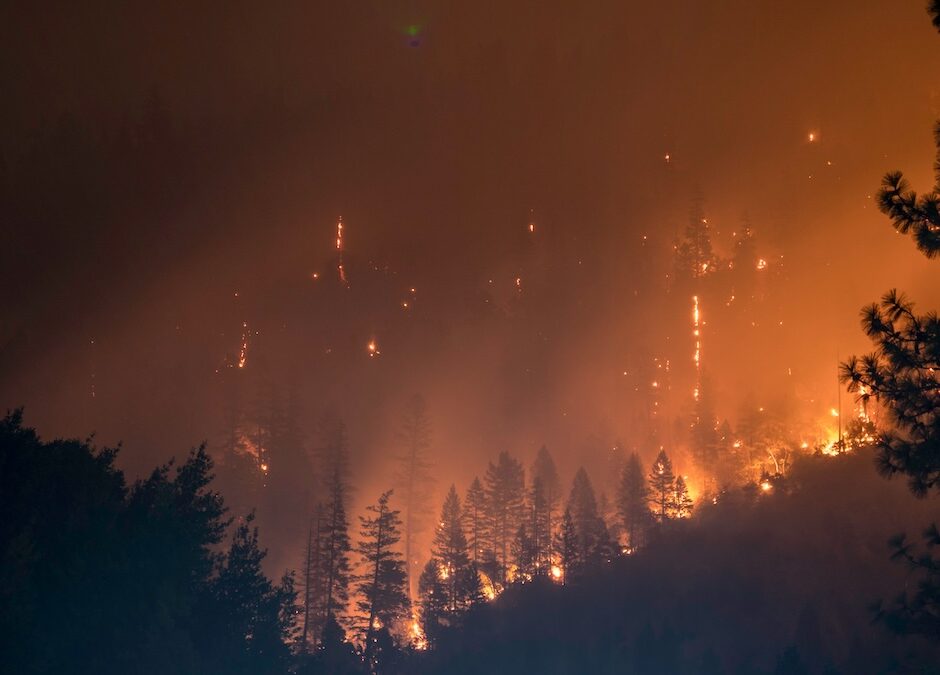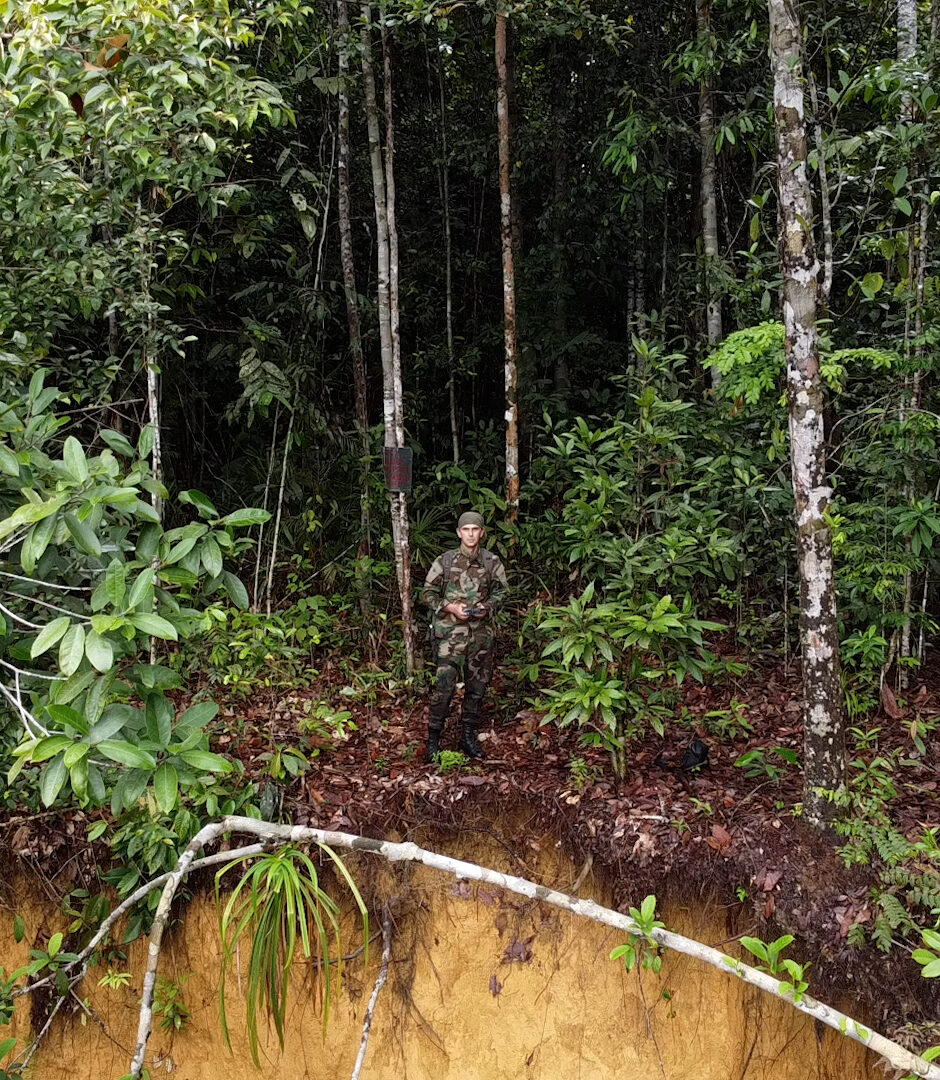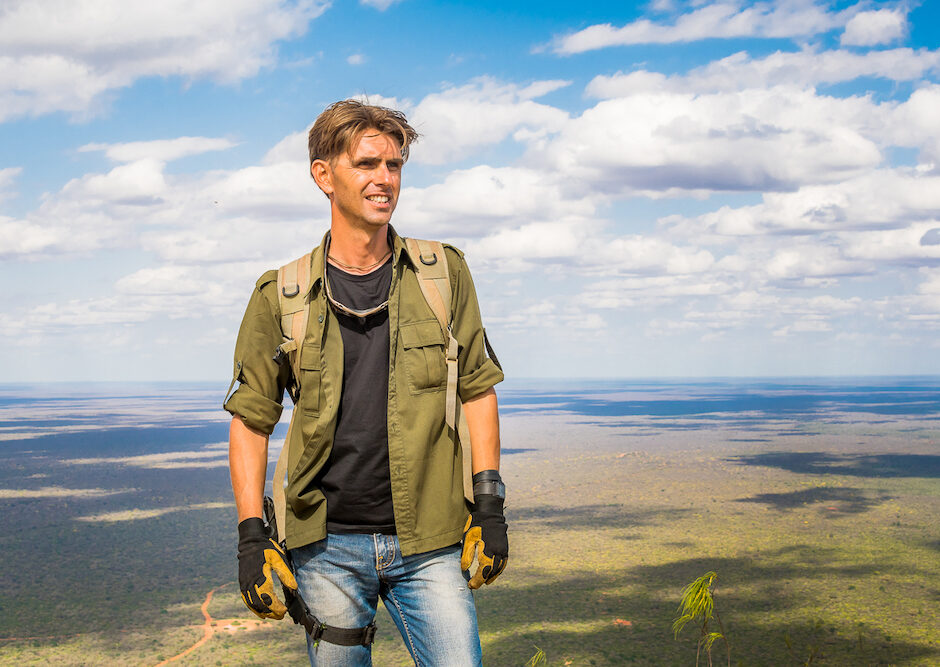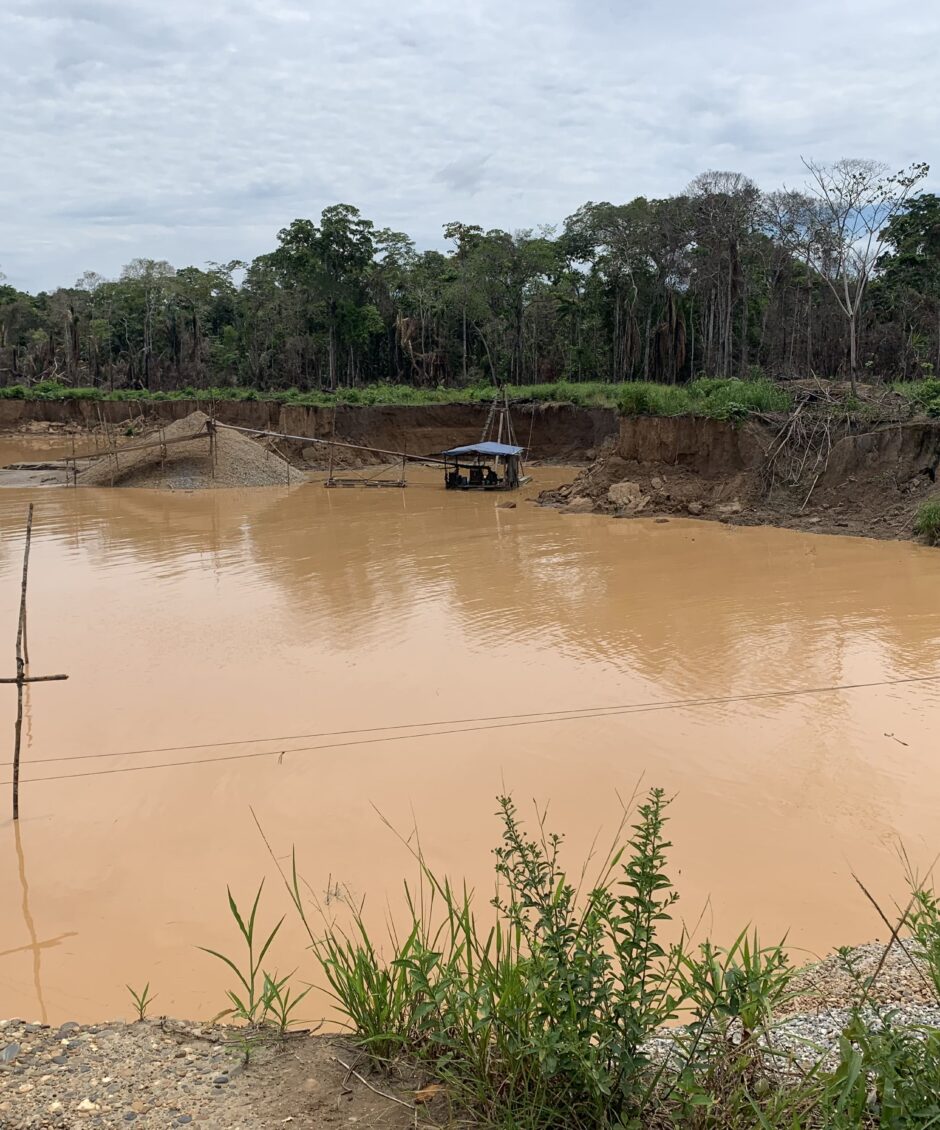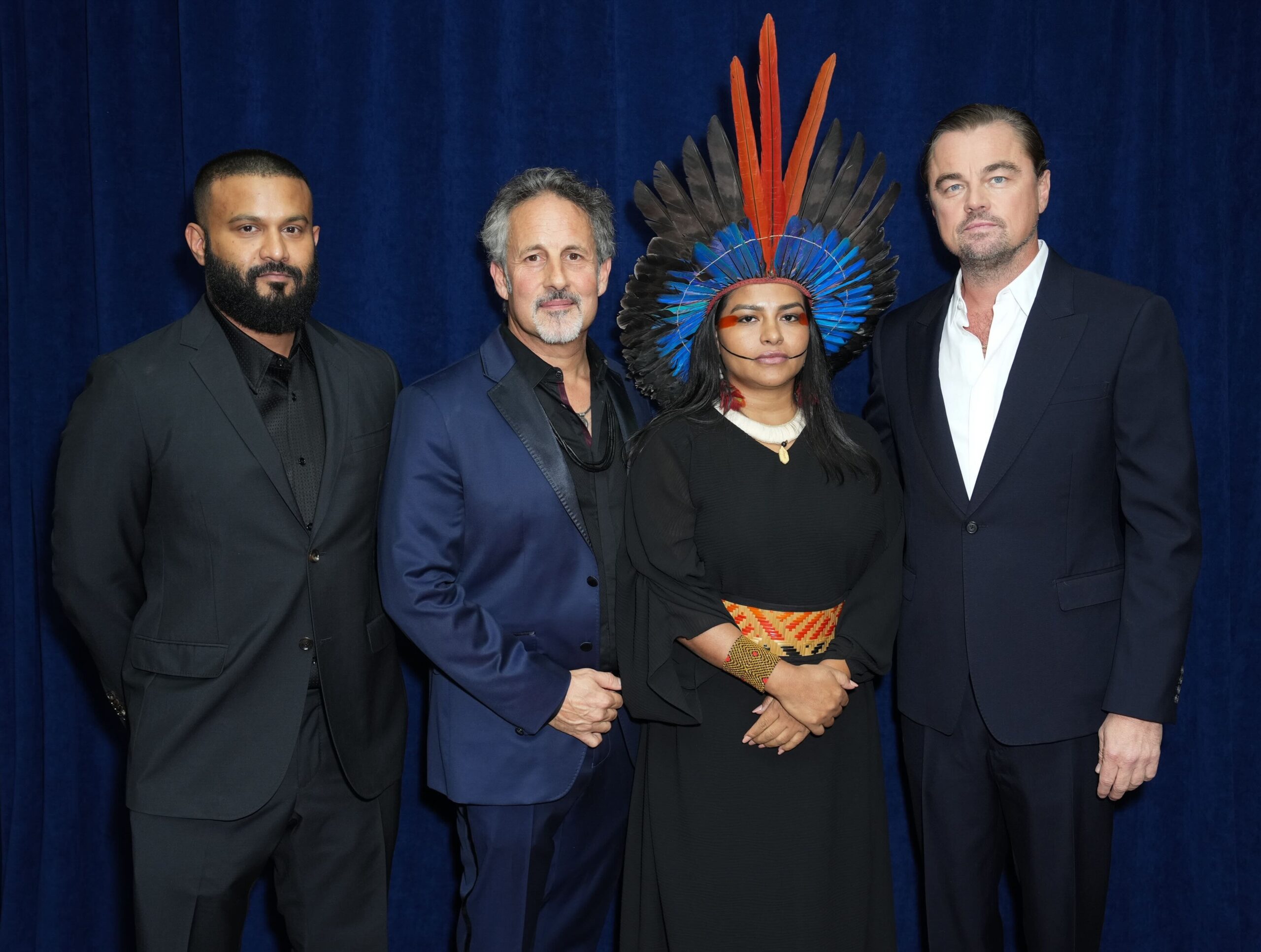Flying Over Borneo’s Dulan Reserve
Article

A recent trip to Borneo highlighted the importance of expanding conservation efforts for Age of Union founder Dax Dasilva.
Author
Joe McCarthy
Topics
From up high in the seaplane, acquired by Kalaweit in 2023 with the support of Age of Union, the potential trajectories of Borneo’s wildlife became clear for Age of Union Founder Dax Dasilva. He was aware of the data, how only half of the island’s original forest remains intact. He was aware of the grisly scenes, how increasingly severe fires devastate animals living in the peatlands of the south. He was aware of the latest geopolitical trends, and how environmental researchers and advocates were being censored and restricted in the region.
But watching acres of the Dulan Reserve’s lush forest suddenly give way to the harsh gashes of coal mines and the drab monotony of palm plantations sharpened his understanding of the stakes for the area’s wildlife, strengthening his belief that more needed to be done to protect this vital ecosystem.
“You understand so much of what’s going on from the sky,” Dasilva said. “You get a perspective that you don’t really get from hiking or boating through. You see what extraction looks like, what palm oil conversion looks like, how important the Dulan looks in the context of everything. You can see what area we can expand, why that’s so critical, and how it would create a corridor.”
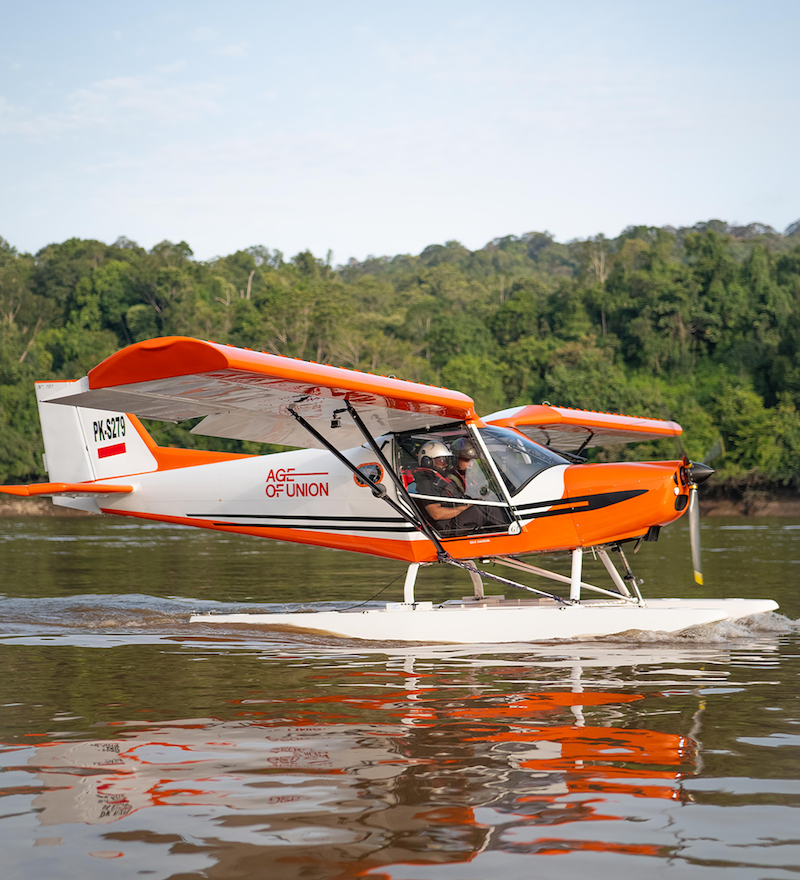
Dasilva was visiting the environmental nonprofit Kalaweit to speak with the group’s founder, Chanee, tour the Dulan reserve, and meet local advocates and rangers. Getting there involved a series of planes, boats, and cars, and local weather limited how often they could travel in the seaplane.
The plane’s primary purpose is to monitor the Dulan reserve for forest fires, pollution, and illegal activity.
“We used the plane a lot during the fire season to try to detect bushfires,” Chanee said. “We flew over this one plantation where they were burning branches and we made a lot of noise by flying low to make sure they knew we were monitoring the area and to let them know that if the fire got out of control, they’d be responsible. It works really well as a dissuasion weapon.”
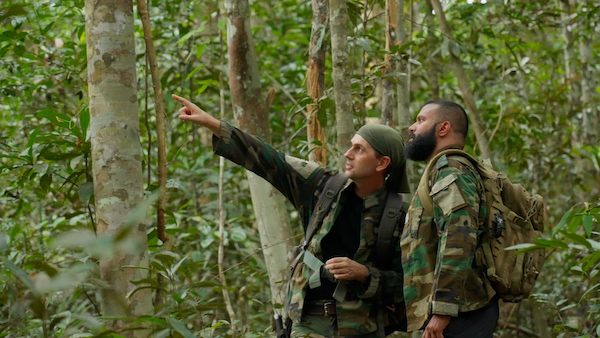
The Dulan Reserve is a 5,800-hectare forest that Age of Union secured in 2019 for Kalaweit and partner organizations to manage. The reserve is home to diverse species, including orangutans and leopards, and has become a gibbon sanctuary. More than 80 local villagers are employed by Kalaweit to serve as forest rangers to monitor, protect, and maintain the reserve. Local communities can still collect rubber, pick fruit, and perform other traditional activities in the reserve, but no trees can be removed. Because half of the reserve is still primary forest, meaning it has never been altered by humans, the area is resilient in the face of fires and droughts.
“The Dulan forest now is safe and when you realize how bad the situation is everywhere else in Borneo, it feels so great to have this victory,” Chanee said. “Now the Dulan will be an example for everyone who wants to replicate this kind of conservation.”
During his trip, Dasilva explored the forest with Kalaweit rangers, stayed overnight at a ranger station, and discussed conservation strategies and plans with Chanee.
“As we hiked through the Dulan and picked up camera traps, we saw that there are more large animals than we thought there would be, maybe because there’s nowhere else for them to go,” Dasilva said.
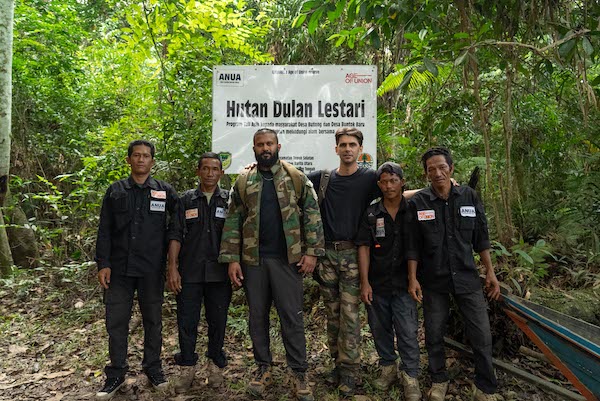
Kalaweit was founded by Chanee to protect animals, primarily orangutans, in Borneo, and has evolved to become a full-fledged wildlife conservation and advocacy group with the help of funding from Age of Union and other sources. Kalaweit hopes to expand the area under its management to ensure Borneo remains a refuge for animals and local communities.
“Deforestation is still happening in Borneo because the government is investing a lot in mining,” Chanee said. “Where the forest hasn’t already been converted into palm oil plantations, you have mining for coal or nickel. You need electricity on-site for each nickel mine and they use coal to get that electricity. So to operate the mine for nickel they do more coal mining.”
While in the seaplane, Dasilva witnessed firsthand the destructive impact of mining on the surrounding forest, with trees levelled to make way for access roads, coal runoff polluting bodies of water and soil, and noxious gases filling the air. With mines encroaching on the Dulan, Dasilva realized that the reserve would have to be expanded.
“There’s still lots of forest, but it’s marked for palm oil, or there’s an active coal mining operation that’s growing,” he said. “You can see how the forest would diminish over time, and how these reserves are like little lifelines that need to be expanded or else there will be nothing left for animals.”
Topics
Article written by
Joe McCarthy
Joe McCarthy is a writer based in Brooklyn who specializes in global politics, climate action, and pop culture.
Related
articles
America, Asia, News
What More Intense Wildfire Seasons Mean For People and the Planet
Asia, News, Project
Indonesian Forest Defenders Prepare for El Niño’s Fiery Potential
Asia, Profile
Why This Advocate Left France to Pursue a Lifelong Mission of Protecting Gibbons in Indonesia
Project
More articles
News
Age of Union Marks 4 Years of Global Conservation Wins As COP30 Commences in Brazil
News, Other
‘Echoes from Eden’ Book Tour Connects Readers to Urgent Stories of Conservation
Explainer, South America
In the Amazon, Gold Mining Leaves a Toxic Trail
America, Asia, News
What More Intense Wildfire Seasons Mean For People and the Planet
Film

